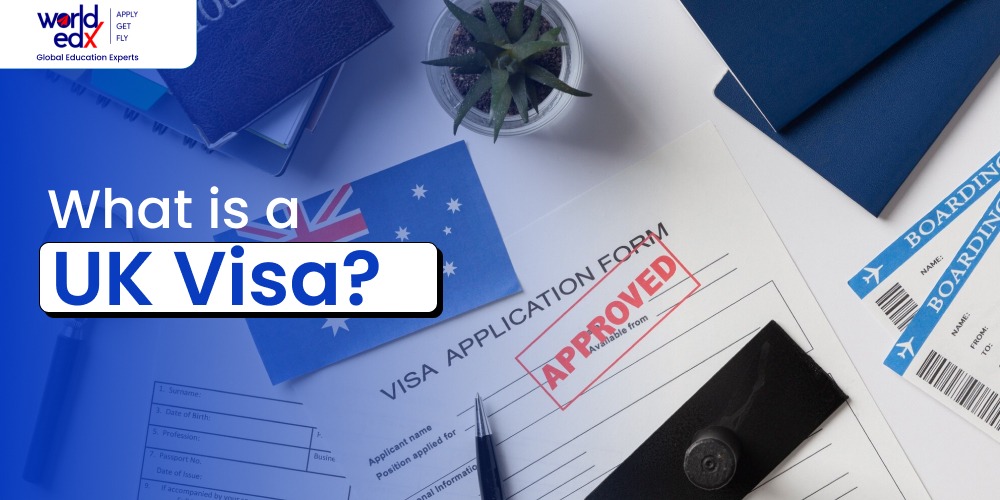A UK student visa is an official authorization allowing students to study in the United Kingdom. It ensures legal entry and residence during the study period. Obtaining this visa is a crucial step for pursuing higher overseas education in the UK, enabling students to access academic opportunities and cultural experiences while adhering to immigration regulations.
Importance of a Student Visa for Overseas Education
The UK Visa has a great importance for students and it enables them to:
- Enrol in a recognized educational institution: The visa allows international students to secure admission to their chosen university, college or other educational institution in the UK.
- Reside legally in the country: With a valid student visa, international students can legally reside in the UK for the duration of their studies, ensuring their stay is compliant with immigration laws.
- Access student benefits: The visa grants access to various student benefits, including discounts on transportation, accommodation and cultural attractions.
- Work part-time: Student visa holders can engage in part-time employment to supplement their income and gain valuable work experience.
Types of Visas in the UK
The UK offers a range of visas for international students according to specific study requirements and durations. The most common types include:
- Student Visa (Tier 4 (General) student visa): This is the standard visa for international students pursuing full-time courses at a recognized institution, generally degree courses lasting for years. It has replaced Tier 4 (General) student visa now.
- Short-term Student Visa: Designed for short-term study programs, this visa lets students study an English language course that is over 6 months and up to 11 months.
- Child Student Visa: Students who wish to attend an independent school between the ages of 4 and 17 can apply for this visa.
Documents Required
The document list for a Tier 4 (General) student visa in the UK includes the following:
- A current passport or other appropriate travel document
- A Confirmation of Acceptance for Studies (CAS) from your selected university or college
- Proof of sufficient finances to cover your living expenses and course fees
- English language test results, if applicable
Additional Documents (may be required)
- A tuberculosis test certificate
- A valid ATAS certificate
- Proof of consent from parents or legal guardian, if you are under the age of 18
- Evidence of your parental or guardian relationship, if you are under the age of 18
- If you have received financial assistance for your living expenses and course fees within the past 12 months, an official letter of approval from your sponsor is required.
Advantages of a Student Visa
A few advantages of a Student Visa are as stated below:
- High-quality education: The UK is renowned for its world-class educational institutions, offering a diverse range of academic programs across various fields.
- Cultural Exposure: Studying in the UK offers a multicultural environment, exposing students to diverse cultures and perspectives and enriching their overall educational experience.
- Career prospects: Studying in the UK enhances employability and opens doors to promising career opportunities, both domestically and internationally.
- Post-study work options: Certain student visas allow graduates to remain in the UK for a period after completing their studies to seek employment.
Role of Interviews in the UK Student Visa Process
Visa interviews play a crucial role in the UK student visa application process. The interview serves as an opportunity for the immigration officer to assess an applicant’s intentions, eligibility, and suitability for studying in the UK. During the interview, the applicant may be asked questions about their academic background, study plans, financial means and ties to their home country.
Preparing for a Successful Visa Interview
For a successful visa interview, applicants should focus on these important factors:
- Thorough Knowledge of Chosen Course and University: Demonstrate a comprehensive understanding of their chosen course and institution.
- Genuine Intentions: Clearly articulate their genuine intentions to study in the UK and return home upon completion.
- Clear and Concise Responses: Provide clear, concise and well-structured answers to all questions.
- Comprehensive Documentation: Present supporting documents such as academic transcripts, financial statements and passport copies.
Conclusion
In conclusion, a UK student visa is vital for international students aspiring to pursue education in the United Kingdom. Aspiring students should approach the visa application process with diligence while ensuring they meet all the requirements. Choosing the right type of visa, understanding its benefits and preparing thoroughly for the visa interview are essential steps in ensuring a smooth and successful journey towards overseas education in the UK.



